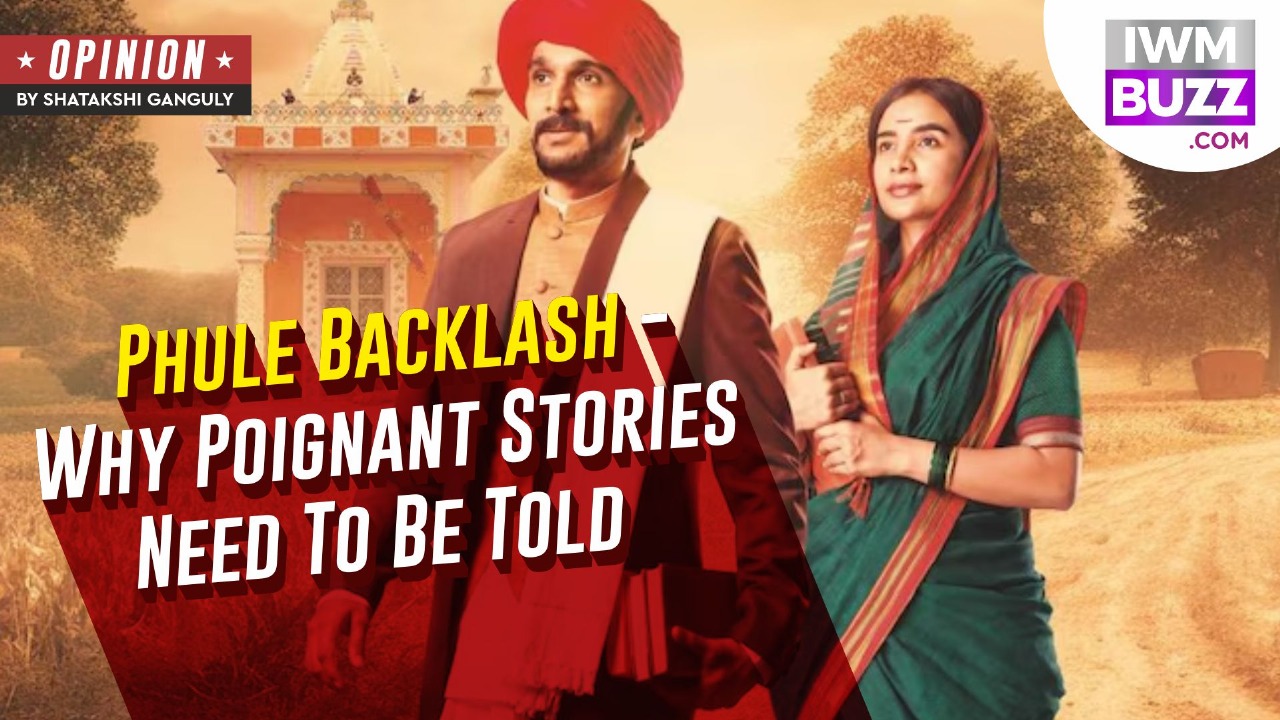“Why does a film on Jyotirao Phule make some people so uncomfortable?”
It’s a question that echoes louder than the promotional taglines of the upcoming biopic Phule, which will be released in theatres on April 25. In an era when cinema is both celebrated and vilified for its influence, perhaps the more pressing question should be—why do we resist history when it holds a mirror to our collective conscience?
Directed by Ananth Mahadevan and starring Pratik Gandhi and Patralekhaa, Phule is an invocation. It calls upon us to remember a past we often relegate to textbooks and to revisit the life of a man who dared to rise above the caste chains of 19th-century Maharashtra. Jyotirao Govindrao Phule, alongside his wife Savitribai, sowed the seeds of social emancipation through education, challenging deeply entrenched hierarchies that governed access to knowledge, dignity, and human rights.
In the heart of colonial India, where caste was law and custom was caste, Phule became an anomaly—an intellectual insurgent armed not with weapons but with schools, books, and the revolutionary idea that the ‘lower castes’ had an equal claim to humanity. His contribution was not merely educational; it was existential for millions whose lives had been dismissed as subhuman by systemic social order. From founding the first girls’ school in Pune in 1848 to establishing the Satyashodhak Samaj, Phule’s legacy is one of moral courage and tireless reform.
Yet, today, more than a century after his death, his story remains unsettling. The recent controversy surrounding the film Phule, including reactions from political commentators and cultural critics, highlights just how little has changed in our social psyche. Sushil Pandey’s measured statement to Times Now, “Cinema cannot fix or ruin a nation,” mirrors the fact that art is not the villain here—our discomfort with truth is.
Well, this isn’t about taking sides. This is about acknowledging pain, erasure, and the long silence that has shrouded the lives of India’s oppressed. Films like Phule are not divisive; they are revelatory.
They confront us with what we prefer to forget: that reformers like Phule existed not in a vacuum but against an overwhelming tide of societal resistance.
Director Ananth Mahadevan rightly states in an interview with The Hindu that “The progressive mission that started 175 years ago has still not been completed. They knew it would not be completed in their lifetime and wanted someone to pick up the baton and carry on.” The caste system, though legally abolished, continues to manifest in the social, economic, and educational margins of our society.
Cinema is a powerful narrative force. And while it cannot, as Sushil Pandey rightly says, single-handedly reform a nation, it can awaken empathy, ignite curiosity, and, most importantly, humanise the footnotes of history.
The film does not ask for our pity—it demands our recognition of a man who championed equality long before it became a constitutional promise.
In an era where representation is often reduced to hashtags and hashtags are dismissed as activism, a film like Phule serves a more enduring purpose. It urges us to remember those who lifted others when the world around them chose silence. And if that discomforts us, perhaps it should.
Because art that makes us uncomfortable is often the art that makes us grow.
Let the theatres light up—not just with reels, but with reflection.

